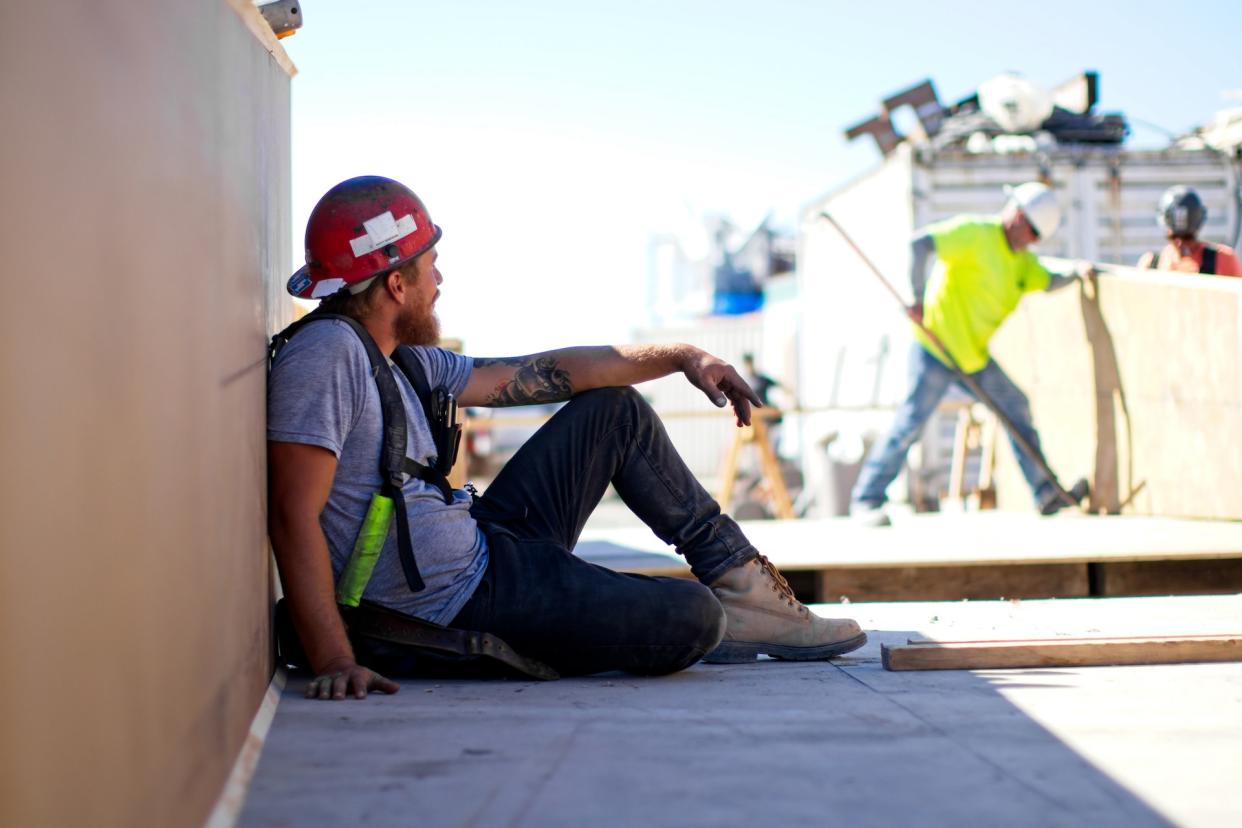Crucial worker protections dropped saying regulations were ‘burdensome and confusing’: ‘The issue just wasn’t a priority’

- Oops!Something went wrong.Please try again later.
The number of workers in the United States who die each year from heat exposure has doubled since the early 1990s — due to rising global temperatures as a result of human-caused pollution.
At the same time, however, states are going backward on laws that offer protections for those same workers.
What is happening?
Texas Governor Greg Abbott just signed off on a regressive law that rescinds ordinances like one in Dallas that mandated water breaks for construction workers.
In other states, businesses have stopped such rules from getting off the ground.
Representatives of the Nevada Home Builders Association, the Nevada Resort Association, the Nevada Restaurant Association, and the Associated Builders and Contractors of Nevada successfully lobbied to shut down a proposed law that would have mandated heat protections for indoor and outdoor workers.
Paul Moradkhan, a representative from the Las Vegas Chamber of Commerce, told lawmakers that it would have been overly “complicated, egregious, burdensome and confusing” for businesses to ensure that their workers had these protections.
Similar laws have been stymied in Virginia and Florida, with business interests arguing that they simply do not want to give protections to laborers and should not be required to.
Why is this concerning?
This summer was the hottest on record, and scientists have said they expect that trend to continue as massive amounts of dirty energy continue to be burned around the world, releasing heat-trapping gases into the atmosphere.
Consequently, manual laborers face more risk than ever of dehydration, heat exhaustion, and heat stroke, which can be life-threatening, and there is also the risk of long-term issues.
And yet, the people who employ these workers seem to have no interest in keeping them safe, nor do people in power in the governments of states like Texas, Nevada, Virginia, or Florida.
The issue “just wasn’t a priority for the leadership,” said one Texas politician who unsuccessfully attempted to create an advisory board responsible for establishing statewide heat protections and set penalties for employers that violated that standard.
What can be done about it?
The most direct action that must happen to reverse this trend is for citizens to vote out the leaders who have stymied these laws and vote in representatives who value labor protections as the climate continues to change.
It is possible for laws to be passed that offer heat protections to workers, even in the face of opposition from callous business interests. Such laws have already been passed in five states: California, Washington, Oregon, Colorado, and Minnesota.
Join our free newsletter for cool news and actionable info that makes it easy to help yourself while helping the planet.

